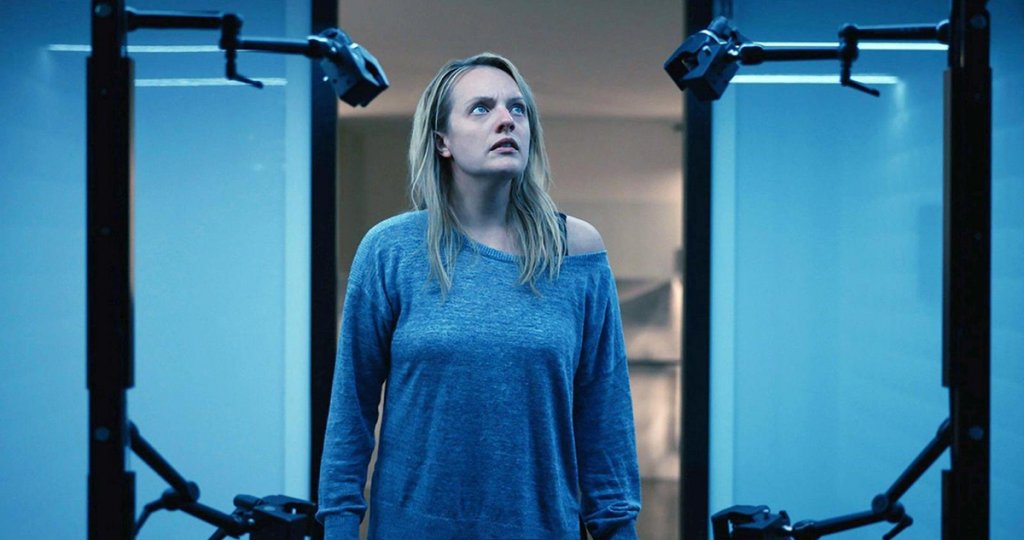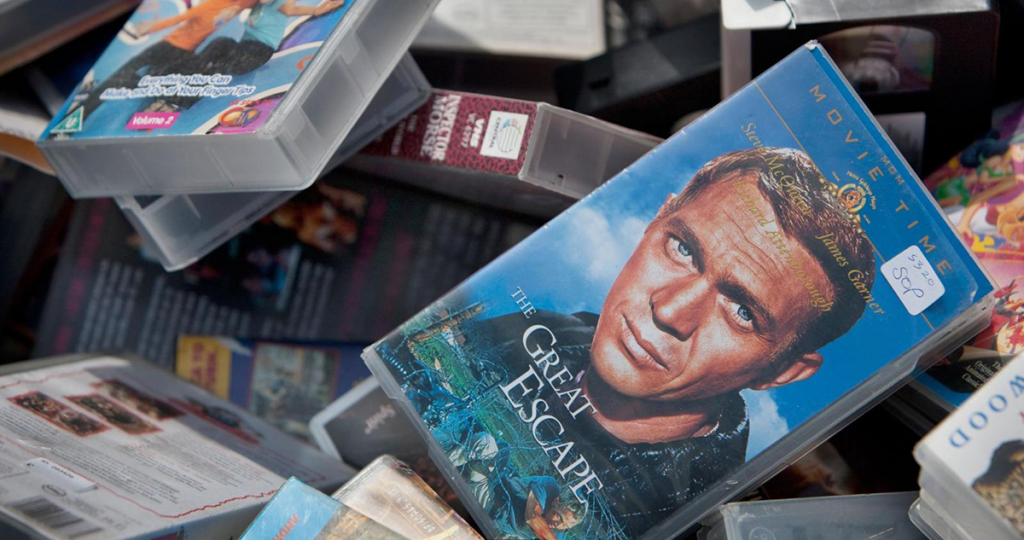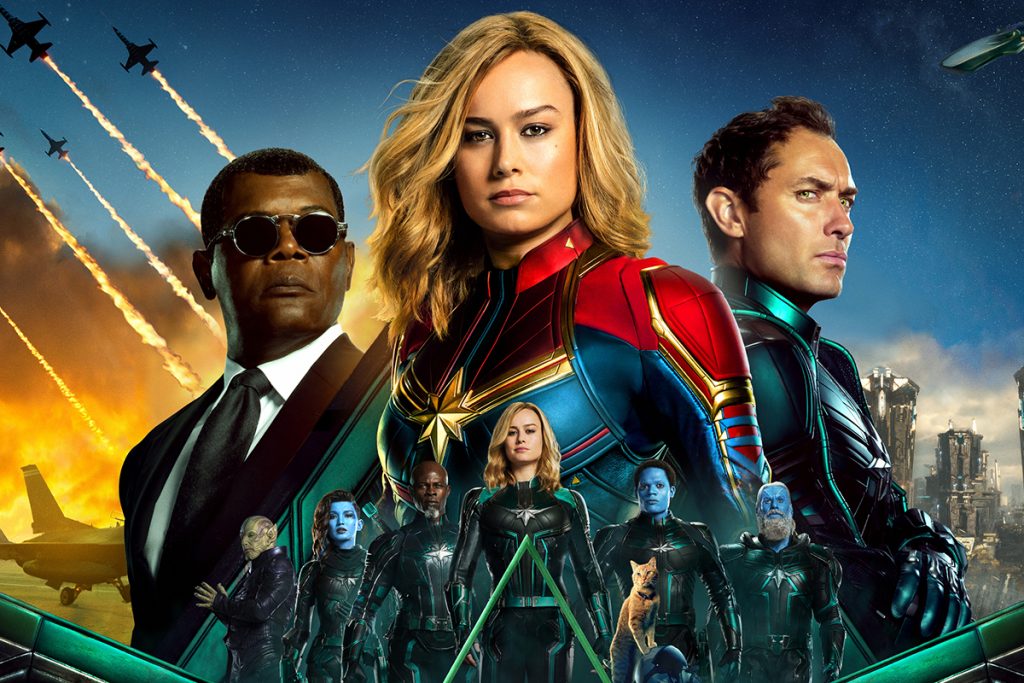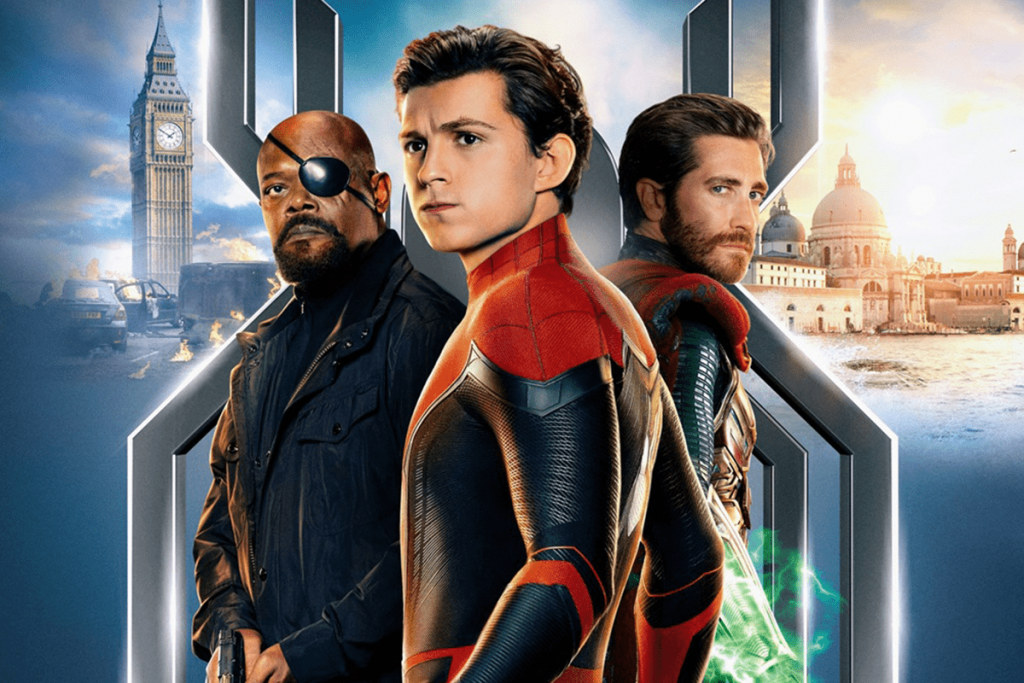Saudi box office did a total of US$238 million in 2021, a 95% increase compared to the previous year.
Saudi Arabia in 2021 continued its exponential growth as a theatrical box office market with revenue totaling US$238 million for the year, a 95% increase compared with 2020 when the total intake had been $122 million, according to figures provided by Comscore.
Four years after the removal of the kingdom’s 35-year-old ban on movie theatres, Saudi Arabia has now achieved the status as the West Asian region’s top theatrical market in terms of gross box office, surpassing the UAE, which achieved a box office of US$130m for the year 2021.
Saudi cinemas witnessed the release of 340 new films in 2021, up from 222 films in 2020. The top-grossing 2021 title was Egyptian comedy Waafet Reggaala (A Stand Worthy of Men), which did US$15 million, making it the country’s top grosser ever since moviegoing was reinstated in January 2018.
Spider-Man: No Way Home was the top-grossing Hollywood title in Saudi Arabia in 2021, earning US$11.2 million and continuing to do well in 2022, ranking the No. 2 spot on the chart. It was followed by Cruella, which grossed US$9.1 million, and Guy Ritchie’s Wrath of Man, which made US$8.3 million in Saudi cinemas.
Egyptian comedy, Mesh Ana (Not Me), featuring local megastar Tamer Hosny, weighed in at No. 5 on the 2021 Saudi box office chart with US$8.2 million, while another release from Egypt Mama Hamel (Mom Is Pregnant), about a 60+ woman who is somehow expecting a child, came in at No. 10, pulling US$5.9 million.
Saudi Arabia’s surge in box office grosses is clearly driven by the increase in multiplexes across the nation. The number of multi-screen movie theaters in Saudi Arabia grew from 33 locations at the start of 2021 to 53 locations by December 2021, an increase of 20 new locations, according to Comscore.
According to figures revealed in December during the Red Sea Film Festival in Jeddah by Bahaa Abdulmajeed -an official from the Saudi Investment Ministry, Saudi Arabia now has 430 screens and counting, and has an ambitious target of reaching 2,600 screens by 2030. Several analysts, including PwC, see Saudi as becoming a billion-dollar movie market in the next few years.
Currently, Saudi-owned Muvi Cinemas operates the highest number of local cinemas, with 21 locations (including its drive-in cinema) across the Kingdom. They are followed by VOX Cinemas with 15 locations. U.S. theater chain AMC Cinemas with 10 locations, Lebanon’s Empire Cinemas with 5 locations and Mexican-owned Cinépolis Cinemas which now operates 2 multiplexes in Saudi.
Top 10 Box Office Hits in Saudi Arabia in 2021
Source: Variety
2021 witnessed the return of movies to the big screen with the release of the most anticipated movies that were delayed by the pandemic.
Hollywood had an active year with a variety of films released, such as sci-fi flicks, Marvel Cinematic Universe movies, musicals, character dramas, thrillers, and animations. The audience were quick to re-embrace cinema as their favourite cultural activity.
As we are nearing the end of 2021, let us look back at some of the highlights from the year 2021 that helped bring movies back to the big screen.
UAE:
KSA:
Egypt:
Oman:
Kuwait:
Bahrain:
Qatar:
Lebanon:
(based on Box Office)

10 blockbuster ads (in no particular order) that lit up the big screen in 2021, as featured in Campaign Middle East :
Brand: Cartier
Title: Expo 2020 Women’s Pavilion
Agency: MediaCom MENA
Brand: Yas Island Abu Dhabi
Title: Stayin’ On Yas
Agency: Starcom
Brand: stc
Title: Our Culture is Our Future
Agency: Universal Media KSA
Brand: Etisalat
Title: #TogetherMeans
Agency: Initiative Abu Dhabi
Brand: Hermès
Title: The Legend of Hermès Della Cavalleria
Agency: Havas Media ME
Brand: NEOM
Title: Made to Change
Agency: Starcom
Brand: Mercedes
Title: The New Mercedes-Maybach S-Class
Agency: OMD
Brand: TRA Bahrain
Title: Digital Theft
Brand: Gulf Bank
Title: AlDanah
Agency: Wavemaker MENA
Brand: Porsche
Title: Macan – Your Sidekick,Everywhere
Agency: BPG Kuwait
There are a dizzying amount of exciting new movies coming to theaters in 2022. These are the top 10 movies you should be looking forward to in the coming year:
For more on the movies coming out in 2022, be sure to check out our sizzle reel, which launches towards the end of January 2022
Souces : Vox Cinemas, IMDB, Box Office Mojo
In this edition of ‘What’s Buzzin Behind the Screen’, we bring you the latest industry news – everything you need to know about what’s happening behind the scenes in Hollywood. From the latest trailer releases, to box office collections and movie announcements, here’s the October 2021 update:
Stay tuned for the latest industry news in our November 2021 edition.
Source: Screen Rant, The Hollywood Reporter, Variety, Rotten Tomatoes and Cinema Blend
Tuesday 5th October is the official Global James Bond Day – a celebration of 59 years of the Bond franchise since the release of Dr. No in 1962. This year, we celebrate the success of Daniel Craig’s last turn as 007 in No Time To Die.
Last Thursday (30th September 2021), we witnessed the return of the ‘licensed troubleshooter’ on the BIG Screen in a BIG way, exceeding conservative pre-weekend projections by rocketing to record US$119M in its opening weekend at international box office (a total of 54 markets).
The 25th James Bond film is also the first Hollywood title of the pandemic-era to cross US$100M in its international launch without China.
No Time To Die opened on 985 screens in the Middle East, making it the biggest release in the market this year. UAE and Saudi Arabia grossed US$2M and US$1.8M, respectively, in its opening weekend (Sept. 30 – Oct. 3).
The weekend opening of James Bond – No Time To Die was not only a busy weekend at the cinema, for it was also the busiest weekend’s in 2021 for Motivate Val Morgan, for we witnessed an influx of brands joining the ‘BondWagon’ to secure advertising alongside the most anticipated movie of the year.
Here are the advertisers who gained coverage beside 007 himself:
DHL
Campaign Type: Follow A Movie (No Time To Die)
Country: Egypt
Locations: VOX Cinemas – City Centre Alexandria, City Centre Almaza, Mall of Egypt
B.Tech
Campaign Type: Follow A Movie (No Time To Die)
Country: Egypt
Locations: VOX Cinemas – City Centre Alexandria, City Centre Almaza, Mall of Egypt
Christian Dior
Campaign Type: Follow A Movie (No Time To Die)
Country: KSA & UAE
Locations: Multiple AMC, Muvi, Reel and VOX cinema locations
Cartier
Campaign Type: Follow A Movie (No Time To Die)
Country: KSA, UAE & Qatar
Locations: Multiple Muvi, Reel and VOX cinema locations
Spotii
Campaign Type: Follow A Movie (No Time To Die)
Country: KSA & UAE
Locations: Muvi Cinemas – Mall of Arabia and VOX Cinemas – Riyadh Park Mall
Armani / Prive
Campaign Duration: Sept. 30th to Oct. 29th
Country: UAE
Locations: Reel Cinemas – The Dubai Mall and VOX Cinemas – Mall of the Emirates
Galaxy Fusions
Campaign Duration: Sept. 30th to Nov. 3rd
Country: UAE
Locations: Reel Cinemas – The Dubai Mall and VOX Cinemas – Mall of the Emirates, City Centre Mirdif, Nakheel Mall and Wafi City
*A total of three commercials that will screen in rotation.
Land Rover (Defender)
Campaign Duration: Sept. 30th to Oct. 13th/Oct. 20th
Country: UAE & Kuwait
Locations: Multiple Reel and VOX cinema locations
Saudi German Hospital
Campaign Duration: Sept. 30th to Dec. 1st
Country: UAE
Locations: Multiple Reel and VOX cinema locations
Campaign Duration: Sept. 30th to Dec. 1st
Country: Kuwait
Location: VOX Cinemas – The Avenues
Yas Island
Campaign Duration: Sept. 30th to Oct. 13th
Country: UAE
Locations: Multiple Reel and VOX cinema locations
Atlantis
Campaign Type: Follow A Movie (No Time To Die)
Country: UAE
Locations: Reel Cinemas – The Dubai Mall, Dubai Marina Mall and The Pointe, and VOX Cinemas – Mall of the Emirates
Prada
Ad Format: 4DX
Campaign Duration: Sept. 30th to Oct. 27th
Country: UAE
Locations: Multiple VOX cinema locations
Kuwait Finance House
Campaign Duration: Oct. 1st to Oct. 21st
Country: UAE
Location: VOX Cinemas – The Avenues
*A total of three commercials that will screen in rotation.
Doha Academy
Campaign Type: Follow A Movie (No Time To Die)
Country: Qatar
Location: VOX Cinemas – Dubai Festival City
RedBull Mobile
Country: Oman
Locations: Multiple VOX cinema locations
The campaign was meant to commence on Sept. 30th; however it has been delayed due to Cyclone Shaheen raging through parts of the Gulf region – mainly Oman. The campaign will therefore commence at a later point in October 2021.
Lincoln
Campaign Type: Follow A Movie (No Time to Die)
Country: UAE
Location: VOX Cinemas – Yas Mall, Mall of the Emirates, Mercato and City Centre Mirdif
*The two commercials will screen in rotation
LEGO
Campaign Type: Follow A Movie (No Time to Die)
Country: UAE
Location: Reel Cinemas – The Dubai Mall
Bank Muscat
Campaign Type: Follow A Movie (No Time to Die)
Country: Oman
Location: Multiple VOX cinema locations
Audi (Q5)
Campaign Duration: Oct. 4th to Oct. 24th
Country: KSA
Location: VOX Cinemas – Riyadh Park Mall and Muvi Cinemas – Mall of Dhahran
On screen advertising wasn’t the only hit during the release of Not Time To Die. From digital screen ads by DHL, a sampling activity by Galaxy, to a car display by Aston Martin at the premier/opening in Egypt and more, check out the off screen activities booked through Motivate Val Morgan on the weekend starting Sept 30th.
In Bond we believed, and as always… 007 delivered!
With an exciting lineup of movies ahead: Venom: Let There Be Carnage, The Last Duel, Eternals, Sooryavanshi (Hindi), Annaatthe (Tamil), House of Gucci, West Side Story, Spider-Man: No Way Home, The Matrix Resurrections, The King’s Man, 83 (Hindi) and more, don’t miss out on aligning your brand alongside the release of these anticipated blockbusters.
Contact a member of our sales team for on and off screen cinema advertising opportunities over the weeks ahead.
Sources: 007.com, Deadline, The Hollywood Reporter and Box Office Mojo
The 10th installment of CinemaCon, the largest annual gathering of the motion picture industry, took place between 23 – 26 August 2021 at Caesars Palace in Las Vegas.
CinemaCon is a global event that attracts delegates from more than 80 countries across the cinema industry, including studios, distributors, exhibitors and content creators.
Whilst the scale of the event was nowhere close to previous editions, mainly due to COVID-19 related travel restrictions, the show did go on, with studios setting the stage for their upcoming movies and giving the industry hope, confidence and a clear message that cinema is here to stay.
Here’s a roundup of studio announcements at CinemaCon 2021:
This year’s event enumerated blockbusters such as F9, Godzilla vs. Kong, A Quiet Place Part II and Cruella as the major drivers behind the extraordinary resurgence of the cinema industry, due to their encouraging box office figures. However, the highlight of the show included the preview of upcoming tentpoles by major studios, while it was announced that most of the preview films will be exclusive theatre releases.
This edition of CinemaCon also featured some discussions on the industry’s challenges coming out of the pandemic. Patty Jenkins, director of ‘Wonder Woman 1984’, emphasized that day-and-date” release is a “heartbreaking experience”. “I’m not a fan of day-and-date, and I hope to avoid it forever,” stated the filmmaker, expressing her strong preference of maintaining an exclusive theatrical window for all her upcoming films. “I don’t understand why we’re talking about throwing (the big-screen experience) away for 700 different streaming services that there’s no room for in the marketplace. It’s crazy to me,” said Jenkins. “One studio should plant a flag and make a huge move just for the theatrical experience, and the filmmakers will go there as a result”
The Chairman and CEO of Sony Pictures also slammed day-and-date releases, pointing to the success of Free Guy at box office, and stated that such ‘terrific’ movies are not meant to be watched at home.
The next edition of CinemaCon is scheduled to be held between 25 – 28 April 2022.
Sources: CinemaCon and Box Office Pro
With the Middle Eastern summer in full swing and school holidays in place, a family movie night is the perfect way to kickback and relax with loved ones!
As travel restrictions are still in place for most countries and with the heat of summer dampening outdoor plans, a family movie night seems the perfect way to relax and bond with family over a tub of popcorn.
Here are our top picks to help you decide what to watch on a family movie night:
The Lion King
A wise man once said, “old is gold” and we couldn’t agree more! Watching the original The Lion King has a charm of its own, the emotions, the thrill and not to mention the excitement! A perfect treat for you and your family.
The Harry Potter Series
Avada Kedavra all your boredom away with the Harry Potter series! Nothing beats magic, wands, and sports played on flying broomsticks! A series for youngsters and adults alike, Harry Potter and his battalion seems like the perfect go-to for a family movie night.
Frozen 1 and 2
A Disney original is always a good idea for family movie night. Be it Elsa’s magical powers or witnessing Anna’s love bring together her family – a movie with a happy ending is a movie for all!
The Pursuit of Happyness
Released in the early 2000’s, The Pursuit of Happyness is about a struggling salesman who takes custody of his son as he’s determined to begin a life-changing professional career.
Minions Series
Starring adorable little minions in lead roles, the Minions series is one to rev up the creative minds of your little ones at home. Filled with mischief, laughter and adventure, it is the perfect pastime these summer holidays. The latest installment, Minions: The Rise of Gru is set to hit the BIG Screen
The Princess Diaries
Breaking barriers of how each princess’ purpose is to have her prince, The Princess Diaries lead by example through their plot. Teaching girls about women empowerment and how even princesses make the silliest of mistakes, this widely loved movie is a must watch for all!
Avengers Marathon
Marvel fanatics, assemble! Everybody loves a good superhero movie with action, adventure, emotions and just the right kind of storyline. Filled with twists and turns, this adventurous, action-packed series will keep you hooked!
Back to the Future
With the latest sci-fi movies in today’s day and age, it’s always nice to kick back with an original that way ahead of its time. Back to the Future is about a 17-year-old high school student who is accidentally sent thirty years into the past in a time-traveling DeLorean invented by his close friend, an eccentric scientist.
Up
Get ready for some waterworks and for your heart to be filled with joy. Up is one of Disney’s most popular award-winning animation that is based on 78-year-old Carl Fredricksen, who travels to Paradise Falls in his house equipped with balloons, inadvertently taking a young stowaway.
The Chronicles of Narnia
Based on a seven-book series, The Chronicles of Narnia has four movie installments, all revolving around a magical land with magical beings who must fight to protect what is theirs.
A plethora of blockbusters are also set to release on the BIG Screen over the rest of summer and the start of fall: Free Guy (August), Paw Patrol (August), Shang-Chi and the Legend of the Ten Rings (September), Venom: Let There Be Carnage (Septmeber), Dune (September), Hotel Transylvania: Transformania (September), Addams Family 2 (September) No Time to Die (October), Clifford the Big Red Dog (October) and more.
Book your tickets and head to the cinema for an immersive experience with your family and friends!
Sources: IMDB and Rotten Tomatoes
Check out the cinema ads booked through Motivate Val Morgan in July 2021
With school summer holidays in effect, Eid al-Adha just around the corner and an exciting line-up of highly anticipated blockbusters set to release over the coming months, cinema is the ideal destination for all this summer and the right time for advertisers to display their brand on the BIG screen.
Here’s a list of cinema ads screening over July 2021:
Hampton by Hilton
Ad Duration: 35 sec.
Campaign Duration: 24th June 2021 to 18th August 2021
Country: UAE
Cinema Locations: VOX Cinemas: The Galleria Al Maryah Island, Nation Towers Galleria, Mercato Mall, Mall of the Emirates and Nakheel Mall, and Reel Cinemas: The Dubai Mall
BMW X3
Ad Duration: 30 sec.
Campaign Duration: Follow the movie – Black Widow
Country: UAE
Cinema Locations: VOX Cinemas: Mall of the Emirates, Nakheel Mall, YAS Mall and Riyadh Park Mall
Atlantis
Ad Duration: 30 sec.
Campaign Duration: Follow the movie– Black Widow
Country: UAE
Cinema Locations: VOX Cinemas: Mall of the Emirates and Reel Cinemas: The Dubai Mall, Dubai Marina Mall and The Pointe
OSN
Country: UAE & Saudi Arabia
Ad Duration: 30 sec.
Campaign Duration UAE: Follow the movie – Black Widow
Campaign Duration Saudi Arabia: 8th July 2021 to 28th July 2021
Cinema Locations: VOX Cinemas: Mall of the Emirates, Riyadh Front Mall and Red Sea Mall, and Reel Cinemas: The Dubai Mall
*Please Note: The final frame of the ad in Saudi Arabia was in Arabic
MBC Group
Country: UAE & Saudi Arabia
Ad Duration: 55 sec.
Campaign Duration UAE: 11th July 2021 to 17th July 2021
Cinema Locations: Multiple VOX, Cine Royal, Reel and Oscar cinema locations.
Herfy
Ad Duration: 30 sec.
Campaign Duration: 22nd July 2021 to 4th August 2021
Country: Saudi Arabia
Cinema Locations: Multiple VOX, AMC and Muvi cinema locations.
McDonalds
Ad Duration: 30 sec.
Campaign Duration: 1st July 2021 to 1st December 2021
Country: Kuwait
Cinema Locations: VOX Cinemas: The Avenues
Boubyan Bank
Ad Duration: 60 sec.
Campaign Duration: 24th June 2021 to 4th August 2021
Country: Kuwait
Cinema Locations: VOX Cinemas: The Avenues
Kuwait Finance House
Ad Duration: 30 sec.
Campaign Duration: 1st July 2021 to 21st July 2021
Country: Kuwait
Cinema Locations: VOX Cinemas: The Avenues
Kuwait Fund
Ad Duration: 30 sec.
Campaign Duration: 8th July onwards
Country: Kuwait
Cinema Locations: VOX Cinemas: The Avenues
Bank Dhofar
Ad Duration: 51 sec.
Campaign Duration: 10th June 2021 to 24th November 2021
Country: Oman
Cinema Locations: Multiple VOX cinema locations
National Water Company (NWC)
Ad Duration: 20 sec.
Campaign Duration: 1st July 2021 to 21st July 2021
Country: Saudi Arabia
Cinema Locations: Multiple AMC, VOX, and Muvi cinema locations
Redtag
Ad Duration: 15 sec.
Campaign Duration: 1st July 2021 to 14th July 2021
Country: Saudi Arabia
Cinema Locations: Multiple AMC, VOX and Muvi Cinemas locations
Here’s a list of highly anticipated blockbusters releasing over Q3 and Q4 2021:
The Suicide Squad
Shang-Chi and the Legend of the Ten Rings
Free Guy
Venom: Let There Be Carnage
No Time to Die
Eternals
Top Gun: Maverick
Whether it’s a launch of a new product, an integrated campaign or a storytelling ad worthy of the BIG screen, cinema offers advertisers an environment that brings campaigns to life.
Don’t miss out on advertising your brand alongside the blockbusters ahead. Contact us for more information on booking cinema ads on the screens across our cinema circuit in the Middle East.
With roughly 80 days to go for Christmas, we at Motivate Val Morgan look ahead to what’s in store on the BIG screen in the month of December, and why brands should plan to include cinema in their festive media campaigns.
From mystery thriller Death on the Nile – based on the 1973 novel by Agatha Christie and Wonder Woman 1984 – the ninth installment in the DC Extended Universe, December 2020 holds festive treats for both cinemagoers and advertisers.
It has been a difficult year for a majority of industries with the outbreak of the COVID-19 pandemic and its on-going coverage dominating the news.
For cinema, Q2 2020 started off with its closure, followed by a staggered reopening between June and September – with cinemas operating at 30-50% capacity, accompanied by the lack of new content. Then came the release of two highly anticipated blockbusters – Tenet and Mulan, closely following each other, that did rather well on the BIG screen in both UAE and Saudi Arabia:
Following this high note was the official announcement of Death on the Nile, Wonder Woman 1984, No Time to Die and Black Widow pushing its release dates to December 2020, April 2021 and May 2021 (respectively).
The good news for now is that Bollywood blockbuster Laxmmi Bomb – featuring Akshay Kumar, which premiers on 9 November 2020 on Disney Plus Hotstar, will also release across cinemas in Australia, New Zealand and UAE simultaneously, on 9 November 2020. Laxmmi Bomb is anticipated to give cinema another upward push at box office in the UAE.
Laxmmi Bomb Motion Poster Trailer:
For now, December has a treat in store for everyone – cinemagoers and advertisers, with a range of highly anticipated a-list and b-list blockbusters, expected to release on the BIG screen.
The month kicks off with a brand new action comedy adventure featuring Ryan Reynolds – Free Guy, a story about a bank teller who discovers that he’s actually an NPC inside a brutal open world video game, scheduled to release 10 December 2020.
Free Guy Trailer:
Next up is Death on the Nile by 20th Century Studios, scheduled to release on 17th December 2020 . The mystery thriller directed by Kenneth Branagh is based on the 1937 novel of the same name by Agatha Christie, and a follow-up to 2017’s Murder on the Orient Express, featuring a star studded cast which includes Gal Gadot, Kenneth Branagh, Tome Bateman, Russell Brand and Letitia Wright.
Death on the Nile Trailer:
Just in time for Christmas will be the release of the much anticipated DC blockbuster Wonder Woman 1984 by Warner Bros. – featuring Gal Gadot, Chris Pine and Kristen Wiig. The film was originally announced for release on 13 December 2019, before being moved up to 1 November 2019, then to 5 June 5 2020, followed by 2 October 2020, and now 24 December 2020. Fingers crossed we won’t have to wait any longer than December 2020.
Wonder Woman 1984 Trailer:
Please Note: release dates for the movies listed above are subject to change.
December being the month of festivity, is something we’re sure most are looking forward to. There’s no denying that come December, the pandemic might still be headlining the news. However, cinema has always been known for providing audiences with a space for escapism – a place to immerse themselves in a story, for a couple of hours, watching feel-good content. Given the hardships we have experienced this year, in some way or another, December holds optimism among cinemagoers, given the powerful movie line-up, and presents opportunities for advertisers to target audiences who are keen to flex their spending power during the festive month leading up to the new year.
Stay tuned for the latest updates on movies releasing on the BIG screen over the next couple of months. We’ve also recently launched an attractive ‘guaranteed views’ package. Contact us if interested in starting a discussion on cinema advertising opportunities alongside any of the above mentioned blockbusters in the month of December 2020.
Sources: Box office Mojo, NDTV, IMDb and YouTube
A feature by Kaleem Aftab as published in BBC (Culture).
Theatres are closing around the world. Jobs are being culled. No one knows when projectors will be fired up again. Cinema is far from unique in being an industry under threat in the time of COVID-19. But there is a particular irony in the fact that many of us have turned to streaming platforms to deliver entertainment to fill the long hours of isolation, often watching content originally made for the silver screen. Audiences have increasingly been consuming more films at home anyway, of course. But now that trend has become a fact of life, many are questioning whether the culture of cinemagoing will resume in the same way once the pandemic abates.
The evidence from China doesn’t bode well. In recent years, China has posted huge box-office figures. In February 2019, Chinese audiences spent $1.63 billion on tickets, a record for a single month anywhere in the world. The contrast to February 2020 could not be greater.

A staff member sprays disinfectant at a Shenyang cinema on 25 March. Photograph Credits – AFP via Getty Images
Chinese theatres shuttered when the virus hit. In mid-March, an attempt to tentatively start opening cinemas again after the easing of the lockdown saw distributors refuse to release new films and audiences stay at home. Already, the almost 500 cinemas that tried to open have shut down again after receiving a letter from the government. Cinema-goers argued that it was too soon to open auditoriums and it was safer to watch films at home, especially when no vaccine for Covid-19 exists.
The situation is bad all over. In the UK, the popular Tyneside Cinema has started a donation campaign to ensure that it will be able to open its doors again. In New York, the world-famous Lincoln Center, home to the New York Film Festival, is one of many to serve redundancy notices as it faces a financial battle to keep going.
Compounding the misery for cinema owners is the fact that film studios have responded by putting films only very recently released in cinemas online. Last week, Disney made Pixar animation Onward available to rent on video-on-demand services, just over a month after its US premiere, while Universal have similarly uploaded The Invisible Man and The Hunt. And the same thing is happening with key indie films too: recent Berlin Film Festival award-winner Never Rarely Sometimes Always has also made the leap to streaming just a couple of weeks after its US opening. The consequence of all this is that studios may wonder why they’re sharing revenue with exhibitors if they can get a bigger cut by going straight to homes.
Indeed, while cinemas are on their knees, streaming platforms are profiting. Demand for home entertainment is so high that services such as Netflix and Disney + have announced they will reduce their picture quality in order to cut the data going to our homes by 25% so that the internet doesn’t get bottlenecked, slowing download speeds to a standstill.
But before we start imagining the liquidation signs going up at our local picture houses, it’s important to remember and celebrate how cinema has weathered societal storms throughout its history. Proclamations on the demise of the cinema have been a regular occurrence through the decades. And yet in 2019, the global box-office revenues from cinema were higher than ever.
How cinemas dealt with a past pandemic
A century ago, there was even the worry, as there is now, that cinemas would be permanently shut down by a virus. From 1918 to 1920, the so-called ‘Spanish Flu’ took the lives of 50 million people worldwide, coming right at the end of World War One, where 40 million died. When the flu hit, cinemas closed around the globe, although not quite in the same blanket way that they have today, with the decision on whether to close or not made by municipal governments in most countries.

The Invisible Man (Image Credits – Universal Pictures)
Orders to close cinemas didn’t come lightly and proved controversial in places like the United Kingdom. Indeed as film historian Lawrence Napper notes, during World War One “for most of the time, they were open and very popular”.
The British government saw cinema as an essential tool for public well-being. “Cinema was the major leisure activity – it kept people occupied, and it helped keep them calm. It also kept them out of the pubs!” says Napper. “Drunkenness was a major issue for the authorities. But also cinemas became a key site for propaganda and a key point of contact between the individual, the local community and the national war effort.”
There was no single moment during the flu outbreak when all the cinemas in the UK shut, and some jurisdictions simply imposed mitigating measures. In London, cinemas were required to be ventilated for 30 minutes every three hours. Those in Wolverhampton banned children and removed carpets. A Walsall cinema showed a 15-minute public information film that featured a Dr Wise and a foolish patient. The advantage of this piecemeal localised policy-making for the industry was that, with films struck onto celluloid prints, and canisters moving from cinema to cinema, movies could shift around to areas that did not have restrictions in place.

Mirroring some of the debates being had today, about balancing the economic impact against the cost of lives, some cinemas owners complained about closing, Napper explains. “There are a lot of letters to the trade press from cinema managers saying the closing of cinemas because of the flu is nonsense, [and asking] ‘What about sporting events and factories? Why should it be cinemas that take the financial hit?’”
Cinemas were encouraged to open around Armistice Day, however, and a week of packed cinemas and celebrations followed – apart from in Edinburgh where influenza restrictions were kept in force. The film journal Kineweekly reported from the city that “there was a feeling that it was the hardest of hard luck that what should have been a record week was one of several which will rank as one of the most disastrous in the history of every house.”
Likewise, in the US, the closing of cinemas because of the flu happened on a regional basis. Critically, the home of the studios, Los Angeles, was severely affected and cinemas in California closed for seven weeks. Production companies withheld new releases and Hollywood studios stopped making movies in this period.
However, it should give us cheer to note that while the film industry in America was certainly impacted, it did not suffer overall but rather changed shape – and in fact flourished even further. As the film writer Richard Brody recently noted in an article for the New Yorker drawing parallels between now and then: “Many smaller companies went out of business, and the resulting shakeout led to a consolidation that made the big ones bigger, creating the studios that became the masters of production, distribution, and exhibition together; the flu, combined with the end of the war, gave rise to the mega-Hollywood that’s being duplicated again today.”
And with this organisational change, audiences only increased – in fact, attendances in the 1930s were higher than in any decade before or since. After The Great Depression of 1929, movies played a critical role in keeping people entertained. It was one of the few affordable means of escape. By numbers of attendees, 1939’s Gone With the Wind remains the most successful cinema release of all time.
World War Two was also, against the odds, a time in which cinema prospered. Many countries, including Britain, saw the cinema as a propaganda tool: a place to give information and boost morale, despite the obvious perils of congregating in public spaces. British cinemas closed for a week at the start of the war before reopening to much fanfare. “Cinema was a site for community activity [and] raising money for charity, [as well as a way for those abroad] to make contact with those at home,” says Napper.
The threat of television
The caveat to looking back at how cinema weathered turbulent historical times is that this all happened before television became ubiquitous. From the 1950s, cinemas didn’t have a monopoly on audio-visual entertainment. Governments also could now channel news directly into people’s homes, so cinema became less important as a propaganda tool. (The current epidemic has seen such dissemination of public information taken a step further with text messages sent straight to mobile phones.)
Television was the new game in town – it was also free to watch after the initial outlay, and creatives and producers suddenly became enamoured by the small box.
In Britain and the US, cinema admission figures have never been higher than in the year 1946, but after that, audience numbers dropped off steeply year by year. Both the McCarthy witch hunt of the early 1950s outing so-called communist sympathisers making movies, and the end of the Hays Code controlling sex and violence, meant that the cinema was suddenly perceived as a less wholesome, more morally tainted space, while television was deemed a safer experience. Meanwhile those in the industry themselves started lamenting the death of cinema as an artform. Legendary producer David O Selznick argued in 1951 that “Hollywood’s like Egypt, full of crumbled pyramids. It’ll never come back.”

The invention of VHS tapes was seen as a danger to cinemas, but in fact it only served to enhance the value of the big-screen experience – Image by Alamy
But cinema was far from down and out. Rather, it was revitalised in the 1970s with the arrival of the summer blockbuster: the very thing that to some represented the ultimate desecration of cinema as an artform, but which reversed the decline in audience numbers. From Steven Spielberg’s Jaws (1975) onwards, blanket releases with mass-marketing became increasingly prevalent.
Then in the 1980s came another even more direct challenge to auditoriums. If television had wounded the size of audiences, it was thought that videotapes might steal them away completely. Invented in 1976, the VHS cassette tape (which quickly usurped its Betamax rival) made films available to own at home, or as more commonly occurred, to rent from video stores. No longer was the cinema the only game in town for cinephiles.

In fact, though, this rival medium served only to enhance the value of the cinema experience. Even though Quentin Tarantino has called the 1980s the worst era in American movies, national box-office returns almost doubled in that decade. Rather than being the death of cinema, video meant film studios had a whole new revenue stream to capitalise on, while home ownership only increased consumers’ passion for film, therefore making them hungrier to see new films from their favourite directors on the big screen. Cinema owners in turn came up with the cleaner and more modern ‘multiplex venues’. The industry rallied.
But if history would show that the cinema slayed the video, as one foe vanished, a new monster emerged for it to do battle with – streaming platforms. In the last few years, the likes of Netflix and Amazon have struck a double blow because at the same time as these companies have offered access to more and more films from the sofa, the original small-screen content they have served up has become ever better and more expensively produced. In 2015, Dustin Hoffman, one of the most celebrated movie stars of all-time, said “I think right now television is the best that it’s ever been and I think that it’s the worst that film has ever been – in the 50 years that I’ve been doing it, it’s the worst.”
Then, adding further peril for movie theatres, Netflix has increasingly lured in big-name directors like Martin Scorsese and Noah Baumbach to make feature-length work for them – but refused to play by the old rules and respect the so-called ‘theatrical window’, which gave cinemas exclusive screening rights to a film for a period of months before its home release.

Pre-pandemic, there were already signs that the culture of cinemagoing was starting to crack under this pressure. In 2018, the average price of an admission ticket in the United Kingdom went down for the first time in decades. The price fell again in 2019. And while overall box-office figures climbed, a smaller pool of films, mostly involving comic-book superheroes, were making the tills ring, and fewer studios were making all the money. Disney made over $11 billion in 2019, but small distributors have been struggling to survive, not helped by the fact that the bigger studios have started to open up their own streaming platforms, monopolising the ancillary market as well.
The new normal
However in the new Coronavirus-afflicted world, the battle with streaming platforms seems like relatively small fry. Since the coronavirus has spread across the world over the last couple of months, cinemas have closed, not in the patchy, ad-hoc fashion of 1918, but all at once.
Productions around the world have stopped shooting. Film Festivals have announced postponements and cancellations. The Fast and the Furious, sprinted to a 2021 release date, while the new James Bond film No Time To Die has been pushed back to November, and Black Widow has been delayed indefinitely. The livelihoods of millions around the globe have been threatened, by a collapse, not just of cinema, but of the industry itself. If cinemas are only closed for seven weeks as they were in Los Angeles in 1918, it would seem like a miracle. Some may never open again. Are we living out the text at the end of Jean-Luc Godard’s Weekend (1968): the fin… du cinema?
The level of the crisis and uncertainty facing the whole industry means it is difficult to contemplate the future at this moment in time, says Adeline Fontan Tessaur, the co-founder of French sales agent Elle Driver. “How can we anticipate anything and make definitive declarations? It’s way too early. We are trying right now to protect our industries. Everyone in the field is trying to anticipate the future and its damages. Of course, whether it’s productions, festivals, sales, or distributors, everything is on hold until we get more news. What happens is beyond one specific industry. We will have to adapt like everyone to this new world. Step by step.”

The effect of the virus has already been to make things that seemed unimaginable a month ago a reality. Hollywood studios have joined Netflix in breaking the theatrical window. Cannes has been postponed. Film festivals such as CPH:DOX and Visions du Reel are going online, with audiences watching premieres in the comfort of their own home. Arguments about the primacy of cinema have been rendered meaningless by the necessity to simply keep people watching.
And given that blockbusters rely on huge marketing campaigns, it’s unlikely that studios will want to take an immediate risk with their bigger titles when cinemas do eventually re-open – before they are sure if audiences are ready to embrace cinema again.
“There’s no doubt [the virus] is a huge challenge that affects all elements of the industry from development and production through to distribution and exhibition,” says Curzon CEO Philip Knatchbull, who runs a chain of cinemas in the UK as well as overseeing the Artificial Eye distribution label. “The immediate problem of course is weathering the financial impact of the loss of box office. When cinemas reopen there will be all sorts of challenges right along the supply chain, some of which won’t be immediately obvious right now.”
Why we shouldn’t despair
Cinemas are in a fight for their lives. The consequences of the current situation could be a wholesale shift in attitudes to streaming platforms and theatrical windows. Curzon had already moved to a day-and-date, simultaneous cinema and on-demand release model before the outbreak. “The theatrical v streaming debate has been very heated in recent years,” says Knatchbull. “There has been lots of speculation recently about how lockdown will impact on viewing habits. I don’t think that’s especially useful; this is a completely unprecedented and, hopefully, unique situation. That said, now is probably not the time for this discussion. Exhibitors and distributors need to work together creatively to see us through this period.”
But for all the sense of impending doom, history suggests that cinema will adapt and bounce back. Crowds flocked to the cinema after the 1918 pandemic, and videos only made people more interested in cinema, not less. After several weeks or, more likely, months cooped up indoors, watching films on our television sets and computer, the experience of seeing a film in cinemas the way they were meant to be seen will be all the more magical. It’s impossible for a home screening to match the technical quality of a film projected in the cinema – and there is also the indefinable adrenaline rush that comes from viewing a film in a large group, with audiences feeding off each other to create an intoxicating atmosphere as Bond gives chase, Daniel Blake starts protesting or Marcello Mastroianni raises an eyebrow. By the same token, most directors would continue to affirm that they first and foremost want their films seen in a cinema because it’s a unique experience.
Other reasons to be cheerful include the fact the overall global box office has only been rising recently, while the record-breaking box office of Oscar-winner Parasite in western countries shows how cinema has also been becoming a truly more globalised enterprise. What’s more, when it comes to movie theatres themselves, they have been getting more luxurious yet again of late, in a progression akin to the advent of the multiplexes.
Knatchbull agrees that cinema will find a way, as it has done throughout history, to thrive again. “Of course! Cinema has survived wars, pandemics and a host of technological changes. There is something elemental about gathering together in a dark room to watch a great film. I’m sure the reopening of cinemas will be a cause for a huge celebration and we’ll see audiences, desperate to get out of the house, flocking back to watch films on the big screen together.”
Source – BBC Culture (Why cinemas will bounce back from the Coronavirus crisis)
4DX had its best year yet at Global Box Office in 2019, with CJ 4DPLEX – the company behind multi-sensory 4DX cinema technology, announcing it had a record-breaking year, grossing more than £246 million ($320 million) for 4DX worldwide.
Marking a 12% increase from 2018’s record of $286 million, it was the best year yet for the groundbreaking format. The uptick is partly credited to booming revenues in the U.S., where 4DX Box Office increased by 73% from 2018, while European markets grew by 17% from the previous year.
The announcement was further proof that a rising tide lifts all boats, after the global box office hit a record high in 2019, surpassing $42.5 billion. Overseas revenues also soared to new heights, topping $30 billion for the first time.
The trend toward premium and immersive cinema formats is helping to fuel this growth.
4DX provides cinema audiences a variety of special effects in cinemas, such as vibrating chairs, blowing winds, fog, and splashing water, through the use of specially designed in-theater technology.
Listed below are the 7 highest movies that smashed 4DX Box Office Records in 2019:
Avengers: Endgame – $34.4M

Aladdin – $25.9M

The Lion King – $23.2M

Frozen 2 – $18.8M

Fast & Furious Presents: Hobbs & Shaw – $16.9M

Captain Marvel – $14.0M

Spider-Man: Far From Home – $13.2M

The top 4DX markets – Japan, China, Korea, France, U.S, Mexico and United Kingdom – together account for more than 66% of the format’s total global box office takings in 2019. These markets broke records in attendance and global box office, surpassing the top seven record of 2018. Most of all, U.S. became the biggest grosser among seven countries as 4DX box office grew more than 73% in comparison to 2018.
The multi-sensory format and Cinema Advertising
4DX engages audiences to be part of the adventure whilst experiencing the entirety of virtual reality, and also offers advertisers an exciting format of cinema advertising – guaranteed to create greater brand impact.
Here’s an article with example 4D cinema campaigns booked through MVM:
Achieve Greater Brand Impact with 4D Cinema Advertising
Break through the confines of advertising and explore the possibility of aligning your brand with a movies scheduled to release in 4DX format across the Middle East.
Mulan
No Time to Die
Black Widow
F9
Wonder Woman 1984
Top Gun: Maverick
Ghostbusters: Afterlife
Jungle Cruise
The King’s Man
Contact us for 4D cinema advertising opportunities across the Middle East.
Sources: Digital Cinema Report and PR News Wire